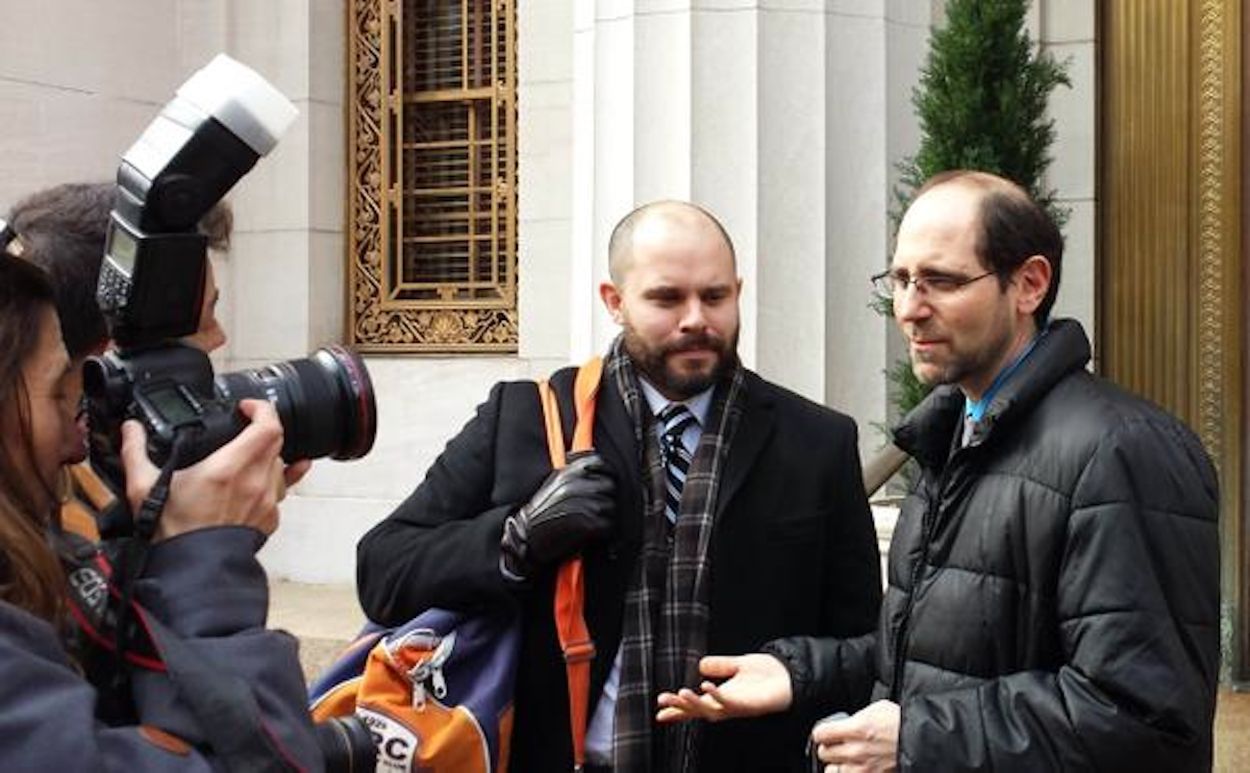A state appeals court ruled Wednesday the Nassau County District Attorney’s office was not required to give former Great Neck resident and convicted sex offender Jesse Friedman his entire case file while trying to prove his innocence decades after pleading guilty.
The appellate court panel reversed a 2013 Nassau County judge’s decision that Friedman could have “every piece of paper” in his criminal file except for the victim’s names.
That ruling followed a three-year investigation by former DA Kathleen Rice’s office after the Second U.S. Circuit Court of Appeals said in 2010 that there may be evidence suggesting Friedman may have been wrongfully convicted.
Rice, who resigned as DA in January after being elected to Congress last November, said at the time her office’s investigation confirmed Friedman’s original conviction, which took place under another DA.
“Instances of wrongful conviction are real and exist in far greater numbers than any of us would like to admit. Wrongful convictions undermine public safety, and they pose the greatest threat there is to the integrity required of our justice system. But the case against Jesse Friedman is not one of them,” Rice said. “I came to this case without an agenda or any personal stake in its outcome, and without any interest outside of searching for the truth. We were fully prepared to exonerate Mr. Friedman if that’s where the facts led us. But the facts, under any objective analysis, led to a substantially different conclusion. This exhaustive and impartial process has only strengthened the justice system’s confidence that Jesse Friedman was involved in the sexual abuse of children.”
Friedman, now 46 and living in Connecticut, pleaded guilty in 1988 with his father, Arnold, to abusing 13 boys who were taking computer classes in the basement of their Great Neck home.
After spending 13 years in prison, he was released on parole in 2001 and soon retracted his guilty plea, saying his confession was coerced by law enforcement officials and police who manipulated false abuse claims from the alleged victims.
In 1995, his father committed suicide in prison.
Friedman’s claims of innocence were chronicled in the Academy Award-nominated documentary “Capturing the Friedmans,” directed by Andrew Jarecki in 2003.
Shams Tarek, a spokesman for District Attorney elect Madeline Singas’ office told Newsday in a statement they were “gratified that the court recognized that the statements of non-testifying witnesses are confidential.”
“Jesse Friedman’s victims never testified in open court because he pleaded guilty, forfeiting his right to a public trial,” Tarek said.
Ronald Kuby, Friedman’s Manhattan attorney, told appellate judges in February that state Supreme Court Justice F. Dana Winslow, who made the 2013 decision and saw case documents that Friedman did not have access to, found differences in statements police took from witnesses as their investigation developed.
“The decision perpetuates the fiction that witnesses’ statements to the police are inherently confidential, even though the police do not, and cannot, make any such promise,” Kuby said in a statement Wednesday. “Maintaining this secrecy makes it that much harder for the wrongfully convicted to clear their names and that much easier for prosecutors to conceal their misconduct.”
Nassau County prosecutors agreed in September 2014 to hold an innocence hearing, but there is no timetable for the court proceedings.
“I was innocent in 1987 and I am innocent today,” Friedman said in a statement Wednesday. “I look forward to proving that in my actual innocence hearing.”



